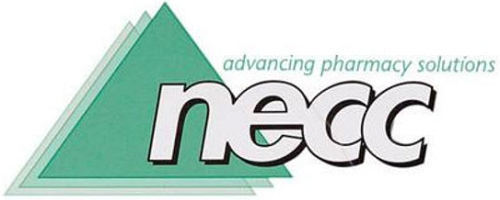Above: A Southborough co-owner of a former nearby pharmaceutical compounding center is the latest to be sentenced for criminal activities at the company.
Yesterday, the Southborough co-owner of New England Compounding Center, a facility that sold tainted pharmaceuticals, was sentenced to one year in prison for his role in defrauding the FDA.
Greg Conigliaro’s sentencing came ten years after a meningitis outbreak that killed over a hundred people and “seriously harmed” hundreds more.
The ruling was made eight years after his arrest and four years after his conviction for defrauding authorities to avoid proper safety oversight of the pharmaceuticals his Framingham based company produced and sold to hospitals and medical facilities.
A press release from the U.S. Attorney’s office states that Conigliaro was sentenced to one year in prison and one year of supervised release. The press release reminds that the case was pursued after an investigation into a fatal meningitis outbreak that made national headlines*:
In 2012, nearly 800 patients in 20 states were diagnosed with a fungal infection after receiving injections of MPA manufactured by NECC, and more than 100 patients died as a result. The outbreak was the largest public health crisis ever caused by a contaminated pharmaceutical drug.
The release outlines the role Conigliaro was convicted for playing in the tragedy. It states that Conigliaro conspired to misrepresent to federal and state agencies that his company was operating as a pharmacy dispensing drugs only pursuant to patient-specific prescriptions, “even going so far as to create fraudulent prescriptions and present them to regulators to conceal NECC’s true activities.” Meanwhile, “NECC was shipping drugs in bulk across the nation for over a decade, evading regulatory oversight through fraud and misrepresentation.”
It goes on to explain:
Through this deceit, Conigliaro and NECC were able to avoid the FDA’s oversight authority—and the FDA’s requirement that drug-manufacturers follow cGMPs—and operate in a slipshod, unsafe manner, ultimately leading to a tragic outbreak of fungal meningitis that killed more than one hundred individuals and injured many hundreds more.
“Mr. Conigliaro and his co-conspirators repeatedly made the choice to put their greed over patient safety,” said United States Attorney Rachael S. Rollins. “In turn, nearly 800 patients suffered terribly and over 100 died. Today’s sentence sends a clear message to healthcare executives – if you lie to regulators, the outcomes can be deadly and we will hold you accountable.”
The long sentencing delay was caused by appeals. According to Reuters, in his 2019 appeal, Conigliaro claimed:
had he known about the “horrible” conduct that occurred in the so-called clean rooms in which NECC’s drugs were produced, “I would have done everything and anything possible to stop it, period.”
The U.S. District Court overturned the conviction, finding that his actions didn’t qualify as a crime. That decision was reversed by the U.S. Circuit Court in September 2021. At that time, Reuters wrote:
U.S. District Judge Richard Stearns said the FDA at the time was unsure it could regulate compounding pharmacies like NECC and was as a result not doing so, making it impossible to impede the agency’s functions.
But U.S. Circuit Judge David Barron, writing for Monday’s three-judge panel, said Stearns never identified any instance in which the FDA disavowed authority to treat a compounding pharmacy as a manufacturer subject to heightened oversight.
Yesterday’s press release from the Dept of Justice refers to millions of dollars that others previously sentenced for crimes related to NECC’s activities were forced to forfeit or ordered to pay. But there is no mention of a financial penalty assigned for Conigliaro. Yesterday’s Reuter’s article states that Conigliaro was fined $40,000.
That doesn’t mean Conigliaro doesn’t have any other financial penalties. In 2015, the court overseeing NECC’s Bankruptcy case approved a plan for complying with a $200 Million Settlement fund for the civil case. The fund for victims of the outbreak includes expected contributions of $47,750,000 – 75,000,000 by NECC’s owners/shareholders. An earlier NBC story lists the Southborough resident as one of the five owners required to make personal contributions totaling close to $50M. It didn’t detail if contributions would be evenly split.
*The tragedy stemming from the tainted drugs was big enough national news to prompt a 60 Minutes story in 2013 looking at how things went wrong at the compounding facility.


